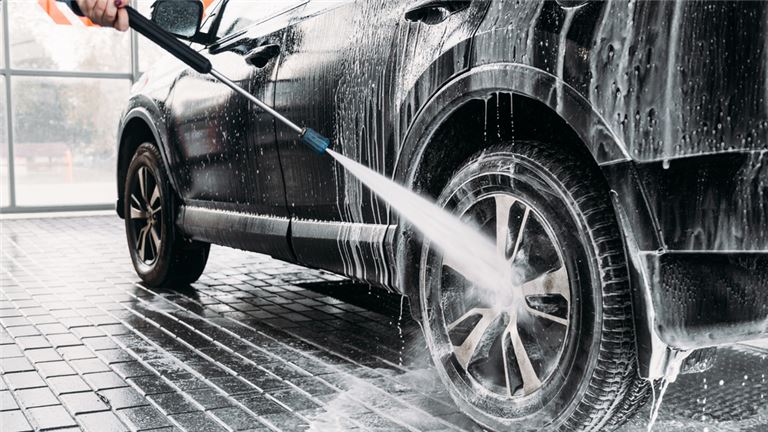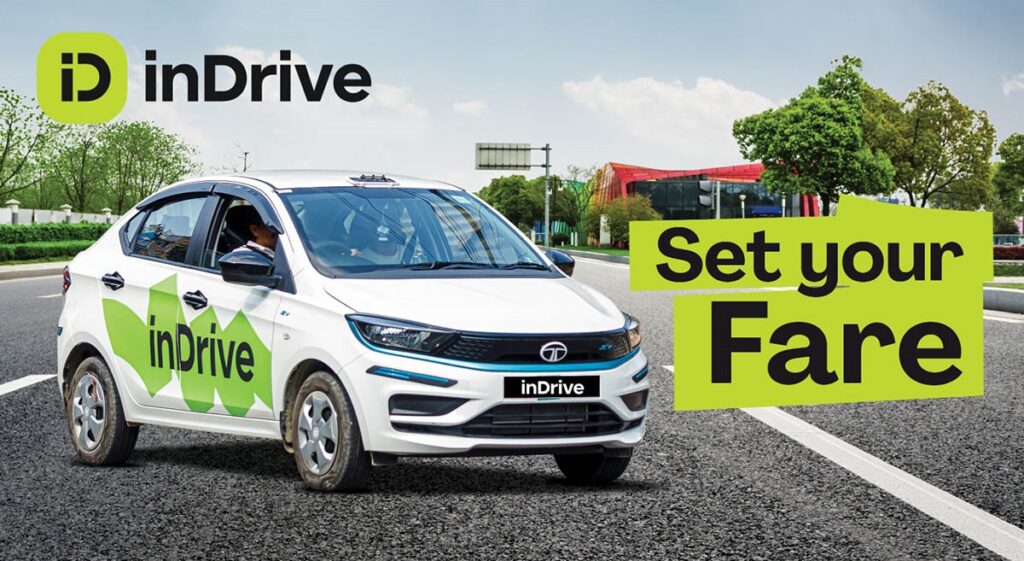The car wash industry may not capture headlines or spark investor excitement like other businesses, but it represents one of the most dependable and recession-resistant business opportunities available in Zimbabwe. While other industries face volatility and uncertainty, the fundamental need for vehicle cleaning remains constant, creating a stable foundation for entrepreneurs seeking steady returns.
This comprehensive guide examines every aspect of establishing and operating a successful car wash business in Zimbabwe, from initial investment requirements and equipment sourcing to operational strategies and growth opportunities. We’ll provide real-world financial projections, identify potential challenges, and reveal the specific suppliers and costs you need to know to get started.
Stay informed and empowered with more practical business insights like this — follow ZimLedger on our WhatsApp Channel: https://whatsapp.com/channel/0029VbBKdAn30LKXCPTKdM1Z
Understanding the Market Opportunity
Zimbabwe’s growing vehicle population, combined with dusty road conditions and limited time for vehicle maintenance among busy professionals, creates consistent demand for car wash services. Unlike many businesses that depend on discretionary spending, car washing often represents essential maintenance that vehicle owners prioritize regardless of economic conditions.
The market serves multiple customer segments, from individual car owners seeking convenience to commercial fleets requiring regular maintenance. Business districts, shopping centers, and residential areas all present viable opportunities, with each location type offering distinct advantages and customer patterns.
Car Wash Business Plan
Creating a comprehensive business plan is essential before investing in a car wash operation. Your business plan should include a detailed market analysis of your chosen area, identifying competitor locations, pricing strategies, and potential customer demographics. Define your service offerings clearly, whether you’ll focus on basic washing, premium detailing, or specialized services like fleet washing. Include a complete financial projection covering startup costs ($2,000-3,000 for a small operation), monthly operating expenses, revenue forecasts based on realistic customer volumes, and break-even analysis. Your car wash business plan should also address operational logistics such as staffing requirements, equipment procurement, supplier relationships, and daily workflow processes.
Consider potential challenges like seasonal fluctuations, equipment maintenance costs, and regulatory compliance requirements. Include a marketing strategy outlining how you’ll attract and retain customers, whether through location visibility, promotional pricing, customer loyalty programs, or partnerships with local businesses. Finally, incorporate growth plans that outline how you’ll expand services, add capacity, or potentially open additional locations as your business develops. A well-structured car wash business plan not only guides your decision-making but also proves invaluable if you need to secure financing or bring in business partners.
Essential Setup Requirements
Location Strategy and Costs
Success in the car wash business begins with strategic location selection. The ideal site combines high vehicle visibility, easy access, and sufficient space for efficient operations. Prime locations include areas near busy roads, shopping centers, fuel stations, office complexes, and residential neighborhoods with limited parking for home washing.
Rental costs vary significantly based on location and size. Small but visible spots in urban areas typically start around $200 per month, while prime locations in high-traffic commercial areas can command $500-1500 monthly. When evaluating locations, consider factors beyond just rent: proximity to water sources, drainage capabilities, local zoning regulations, and potential for future expansion.
Infrastructure and Utilities
A successful car wash operation requires reliable water supply and proper drainage systems. Work with local authorities to ensure your drainage meets environmental regulations, as improper water disposal can result in fines and operational shutdowns. Some locations may require installation of oil-water separators or settling tanks to meet compliance standards.
Consider the source and cost of water supply. Municipal connections offer convenience but are not reliable, while borehole water can reduce ongoing costs but requires an initial drilling investment. Bulk water delivery is another option, allowing you to purchase large quantities from suppliers who deliver directly to your premises. Factor in backup water storage for periods of municipal shortages, which are common in many Zimbabwean cities.
Equipment Sourcing and Specifications
Pressure Washers
High-pressure washers form the backbone of efficient car wash operations. Several reputable brands are available through established Zimbabwe suppliers:
Husqvarna Models: Available through Electrosales, these units offer reliable performance with good parts availability.
Karcher Equipment: Sourced through Halsted, Karcher represents premium quality with excellent durability.
Covax Options: Available from Genking, these provide cost-effective alternatives with good performance for budget-conscious operators.
Pricing for pressure washers in Zimbabwe generally starts from around USD 180 for entry-level models, increases to between USD 200 and USD 700 for mid-range options, and can exceed USD 1,000 for professional-grade units with advanced features.
Vacuum Cleaners
Professional-grade vacuum cleaners are essential for interior cleaning services. Multiple suppliers offer various brands:
Electrosales: Stocks Husqvarna and Karcher vacuum systems.
TV Sales: Offers Karcher, Phillips, and Sharp models across different price ranges, providing good selection for various budget levels.
Bhola Hardware: Features Bosch and Karcher options, known for reliability and parts availability.
Pricing for vacuum cleaners in Zimbabwe typically begins at around USD 150 for basic models, ranges between USD 200 and USD 500 for mid-range options, and can go beyond USD 800 for high-capacity or specialised commercial units.
Import Considerations
Direct importation from South African suppliers can provide access to wider equipment selection and potentially better pricing, depending on exchange rates and shipping costs. However, factor in import duties, shipping timeframes, and warranty support when comparing local versus imported options.
Operational Supplies and Materials
Beyond major equipment, successful operations require comprehensive supplies inventory:
Cleaning Products: Stock quality car shampoos, wheel cleaners, tire shine products, interior cleaners, glass cleaners, and protective waxes. Establish relationships with chemical suppliers for bulk purchasing discounts.
Tools and Accessories: Maintain adequate supplies of microfiber cloths, washing mitts, brushes for different surfaces, buckets, hoses, and spray bottles. Quality tools last longer and provide better results.
Initial Supply Investment: Budget approximately $200-300 for initial supplies, with ongoing monthly replenishment costs of $100-$200 depending on volume.
Shelter and Infrastructure
Installing proper shelter protects both workers and vehicles while improving working conditions. Simple shed structures cost $350-$500 for basic coverage, while more elaborate canopies with partial walls can reach $800-$1,500. Consider structures that provide adequate drainage and allow for future expansion.
Power Solutions and Backup Systems
Zimbabwe’s frequent load shedding makes reliable backup power absolutely critical for consistent operations. Power outages during peak business hours can result in significant revenue loss and customer frustration.
Generator Requirements and Sizing
Small Operations (2.5KVA): Starting around $350, these generators can power basic pressure washers and small vacuum units. Suitable for operations with limited simultaneous equipment use.
Medium Operations (5KVA): Beginning at approximately $700, these provide capacity for multiple equipment pieces running simultaneously and allow for business growth.
Larger Operations (7.5-10KVA): For expanded operations with multiple bays and additional services, larger generators ($1,000-$2,000) ensure consistent power supply.
Supplier Options
Multiple suppliers offer generator solutions across Zimbabwe:
- Powershop: Comprehensive selection with good after-sales support
- Amanat: Competitive pricing on popular brands
- ATA: Professional equipment focus with commercial-grade options
- Electrosales: One-stop shopping combining generators with other car wash equipment
- Bluetek: Good technical expertise and maintenance services
Fuel Considerations
Petrol generators offer lower initial costs and easier maintenance compared to diesel alternatives. However, factor ongoing fuel costs into operational budgets.
Staffing Strategy and Labor Costs
Team Structure
Small operations typically require 2-3 workers to maintain efficient service delivery. As volume grows, additional staff enable multiple simultaneous services and reduced customer waiting times.
Key Roles:
- Wash Attendants: Handle external cleaning, pressure washing, and drying
- Interior Specialists: Focus on vacuuming, dashboard cleaning, and detailing
- Quality Controllers: Ensure consistent standards and customer satisfaction
- Cashiers/Customer Service: Handle payments and customer interactions
Compensation Structure
Base salaries typically start around $150 per month, with successful operations supplementing through performance incentives. Consider implementing:
- Tip sharing: Motivates quality service and customer satisfaction
- Volume bonuses: Rewards for exceeding daily or monthly targets
- Quality incentives: Bonuses for maintaining high customer satisfaction ratings
- Retention rewards: Additional compensation for long-term employees
Training and Development
Invest in proper training to ensure consistent service quality. Cover proper washing techniques, chemical handling safety, customer service standards, and equipment maintenance basics. Well-trained staff reduce rework, improve efficiency, and enhance customer satisfaction.
Financial Analysis and Profitability
Revenue Projections
The average price for a full wash (inside and outside) is about $5 for private cars in Zimbabwe. Larger vehicles like lorries attract higher prices of $8-10. In addition to standard washes, many car washes offer extra services that attract higher prices, including engine cleaning, full valet, upholstery shampooing, polishing, waxing, headlight restoration, rim detailing, and paint protection treatments.
For a basic revenue scenario of a small car wash with a good location, assuming you wash 20 cars per day at an average of $5 per car gives you daily revenue of $100. Over a 30-day month, that amounts to $3,000 in gross revenue.
Operating Expenses
From the gross revenue, you will deduct rent, salaries, water, electricity/generator fuel, cleaning supplies, equipment maintenance, and other expenses. Rent for a small but visible spot starts from about $200 per month in many urban areas, though prime and larger spots can cost much more. Staffing for a small car wash may start with 2 or 3 workers, each earning from $150 per month plus tips and possible commission based on performance.
Profit Projections
After expenses, with a small car wash you can achieve monthly profits of $800 to over $1,500. Operators who manage costs effectively and maintain a steady flow of customers can achieve strong monthly profits, with higher returns during busy weekends, month-ends, and after rainy days.
Real-World Considerations
While the financial projections outlined above provide a useful framework for understanding potential profitability, actual results can vary significantly due to numerous factors. Low customer volumes during slow periods, economic downturns, or increased competition can dramatically reduce daily car counts below the projected 20 vehicles. Higher than anticipated rental costs, especially in prime locations, can quickly erode profit margins. Employee-related challenges such as theft of cash or supplies, poor work quality leading to customer complaints, or high staff turnover requiring constant retraining can impact both costs and revenue.
Additional factors include equipment breakdowns requiring expensive repairs, water/electricity shortages leading to utility cost increases (purchasing bulk water & generator fuel), seasonal fluctuations in demand and unexpected expenses such as drainage repairs or local authority compliance costs. Successful operators must factor in these variables and maintain financial reserves to navigate the inevitable challenges that arise in any service-based business.
Premium Services and Revenue Enhancement
Advanced Service Offerings
Expanding beyond basic washing increases average transaction values and customer retention:
Engine Bay Cleaning: Requires specialized degreasers and careful technique
Full Valet Services: Includes detailed interior shampooing, leather conditioning, and minor scratch removal
Paint Protection: Involves application of protective coatings and sealants
Headlight Restoration: Addresses clouded or yellowed headlight lenses
Rim and Tire Detailing: Includes specialized wheel cleaners and tire shine applications
Package Development
Create service packages that encourage upselling:
- Basic Package: Standard wash
- Premium Package: Standard wash plus wax and tire shine
- Deluxe Package: Full service including interior shampoo and engine cleaning
- Executive Package: Complete detailing with paint protection
Risk Management and Challenges
Common Operational Challenges
Staff-Related Issues: Employee theft of cash or supplies can significantly impact profitability. Implement proper cash handling procedures, inventory controls, and regular audits.
Equipment Reliability: Breakdowns during peak periods result in lost revenue and customer dissatisfaction. Maintain service relationships with equipment suppliers and keep basic spare parts inventory.
Seasonal Fluctuations: Demand varies with weather patterns and economic cycles. Build financial reserves during strong periods to maintain operations during slower times.
Competition: New entrants can saturate markets and pressure pricing. Focus on service quality, convenience, and customer relationships to maintain competitive advantage.
Regulatory Compliance
Ensure compliance with local authority requirements for business licensing, environmental regulations, and water usage permits. Regular inspections and proper documentation prevent costly shutdowns or fines.
Growth Strategies and Expansion
Scaling Operations
Additional Service Bays: Expanding capacity allows simultaneous service of multiple vehicles, reducing wait times and increasing daily volume.
Extended Hours: Operating during early morning and evening hours captures commuters and working professionals who cannot visit during standard business hours.
Weekend Operations: Friday Evening, Saturday and Sunday often provide highest volumes as customers have more time for vehicle maintenance.
Complementary Business Integration
Maximize location value through related services:
Automotive Services: Partner with or establish tire sales and repair, wheel alignment, or minor mechanical services
Convenience Retail: Small shops selling automotive accessories, beverages, and snacks for waiting customers
Food Services: Simple café, takeaway operations or braai to serve customers during service times
Tinting and Accessories: Window tinting and automotive accessory installation provide high-margin additions
Mobile Service Development
Mobile car wash services command premium pricing due to convenience factor. Portable equipment investment of $1,500-$2,500 enables service delivery to customer locations, targeting busy professionals and residential areas with limited washing facilities.
Technology Integration and Modern Operations
Payment Systems
Implement multiple payment options including mobile money (EcoCash, Innbucks, Omari), card payments, and traditional cash to accommodate all customer preferences and increase convenience.
Customer Management
Simple customer databases track service history, preferences, and contact information for marketing purposes. Regular customers appreciate personalized service and reminders for regular maintenance.
Digital Marketing
Leverage social media platforms and local advertising to build brand awareness. Before and after photos, customer testimonials, and service demonstrations effectively showcase quality and value.
Conclusion
The car wash business represents a practical, profitable opportunity for entrepreneurs seeking steady returns in Zimbabwe’s challenging economic environment. While initial investment requirements are modest compared to many businesses, success depends on careful attention to location, service quality, and operational efficiency.
The combination of consistent demand, scalable operations, and opportunities for service enhancement makes car washing an attractive venture for both new and experienced business owners. With proper planning, adequate capitalization, and commitment to customer satisfaction, a car wash operation can provide sustainable income and growth potential.
Success requires patience, attention to detail, and willingness to adapt to changing market conditions. However, for entrepreneurs prepared to invest the necessary effort and resources, the car wash industry offers one of the most reliable paths to business ownership and financial independence in Zimbabwe’s current economic landscape.
ZimLedger
ZimLedger is the all in one business and finance platform for Zimbabwe. It generates quotes, invoices, payslips and financial statements, manages business ledgers, tracks income and expenses, and builds shopping lists. ZimLedger offers a simple yet powerful solution tailored to local needs. Whether you are budgeting in ZiG or USD, managing business accounts, converting Ecocash statements, or tracking household expenses, ZimLedger empowers you to stay organised, make informed financial decisions, and grow your wealth—right from your phone or computer.














This was detailed and simple to understand thank you
What are the legal requirements for this type of Business
I’m really grateful for everything,Thank you very much